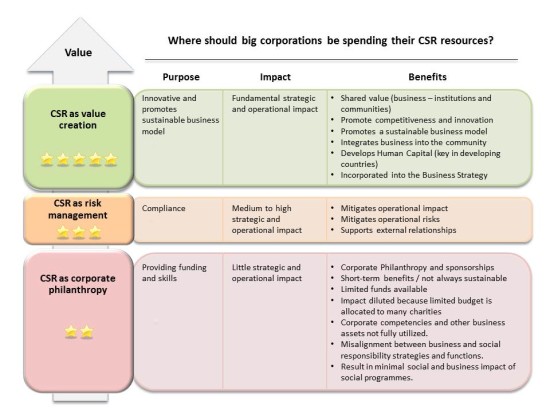You might find some variance in the definition of CSR, but typically corporate social responsibility is about the accountability a company has for its impact on society (people) and the environment. It is necessary because unfortunately, there have historically been some bad actors in the business world. They exploited workers by underpaying them, not providing any benefits, such as health insurance, and firing them if they tried to organize in order to get their needs met.
You may not have heard of the Ludlow massacre, but it is relevant today because there is an ongoing struggle between some companies that emphasize profits over people. It’s hard to believe that in America, 66 men, women and children lost their lives in an attack by armed coal miners that also led to rioting.
The people who were attacked on that very violent day in 1914 were striking miners. Their employer was the Colorado Fuel & Iron Company, a business owned by John D. Rockefeller. He later denied that a massacre had taken place.
Three years prior to this incident, the Triangle Shirtwaist Company factory fire took place, which killed 145 workers. Most of these deaths could have been prevented. Sweatshop conditions were deplorable in those times, and many workers in the era suffered injuries, illness, and fatalities that could have been avoided if there were better worker protection laws and measures in place.
You might say that all that was a long time ago, and things are very different now, which is true, but not completely.
In 2010, 29 miners lost their lives in a West Virginia accident where company negligence played a role. The mine’s owners were ordered to pay a $209 million settlement and some of the company’s leaders were sent to prison. It might not seem possible that in our modern era, such loss of life in a work setting would be possible, but some companies still operate in ways that don’t care, or don’t care that much, about employees.
WalMart had to pay $35 million in a class action settlement involving 88,000 workers in the state of Washington. The workers said they were not allowed meal or rest breaks, and had to work off the clock at times.
You might not think such worker exploitation would happen in modern times, but it does, and all too often.
Also, there is an attitude floating around, based on the way business has been conducted for decades, which essentially says, ‘that’s the cost of doing business.’ In other words, some casualties or even fatalities are just part of the ball game. This view is not true, however, as it is more about the habits and assumptions we have inherited from the past.
One example comes from the steel industry, which is one field everyone knows has its dangers. This is a long quote, but it is very worth reading because it is sort of the crux of the matter, ““Every year, numerous Alcoa workers are injured so badly that they miss a day of work. Our safety record is better than the general workforce, especially considering that our employees work with metals that are 1500 degrees and we have machines that can rip a man’s arm off. But it’s not good enough. I intend to make Alcoa the safest company in America. I intend to go for zero injuries.” Why wasn’t O’Neill making them feel warm and fuzzy? How were they going to make money by focusing on safety?
Eventually, someone raised a hand and asked about inventories in the aerospace division, while another person asked about the company’s capital ratios. O’Neill held firm, “I’m not certain you heard me. If you want to understand how Alcoa is doing, you need to look at our workplace safety figures. If we bring our injury rates down, it won’t be because of cheerleading or the nonsense you sometimes hear from other CEOs. It will be because the individuals at this company have agreed to become part of something important: They’ve devoted themselves to creating a habit of excellence. Safety will be an indicator that we’re making progress in changing our habits across the entire institution. That’s how we should be judged.”
At the end of his speech, the crowd ran out the door as if there was a fire. All in a panic stricken rush to sell their Alcoa stock as fast as they could.
Those who held onto their Alcoa stock were handsomely rewarded. Within a year of O’Neill’s speech, Alcoa’s profits hit a record high. By the year 2000, when O’Neill retired, Alcoa’s market capitalization was 5 times more than what it was in 1987.
Everyone on some level knows what the bottom line is: profits. However, the single-minded pursuit of profits can lead to many preventable worker injuries and deaths, as we have seen with just a few examples – and there are many more.
When you add people to the profit bottom line, you get the double bottom line (profits and people), which is actually a better way to run a business, because you can include both employees and customers in the people line, and if you take care of both, you stand a better chance of succeeding. Of course, focusing on people and profits might seem like a no-brainer, but some companies still try to succeed by only focusing on profits.
In fact, there is another addition to the double bottom line – the planet. When you add people and the planet to profits, you have the triple bottom line. Some companies might not make it all the way to the triple bottom line, but getting to at least the double bottom line would be better for them than staying at the profit-only level.
Of course, there is more to corporate social responsibility than that, but if you want a simple way to remember it, just think: people, profits, and planet.
The ROI for doing so has been proven. These are just a few examples of some of the benefits, “On the HR front, the numbers are impressive: CSR programs can increase productivity up to 13 percent and reduce the employee turnover rate by up to 50 percent for large, publicly traded companies. For each employee that is retained, companies can save up to 90 to 200 percent of that employee’s salary. Prospective employees also view firms with high corporate social performance as more attractive; workers are willing to take up to a 5 percent pay cut to work at these firms.”
The number of environmental transgressions committed by companies is also quite large. Most people have probably heard of the Exxon Valdez disaster and DeepWater Horizon – and these are just two of many, many examples. In West Virginia, several thousand people had their drinking and bathing water source contaminated by a 7,000 gallon chemical spill, which was connected with a particular company.
Companies which are struggling might improve their performance by adopting some better CSR measures or implementing some triple bottom line programs.
Image Credit: Touro/public domain









